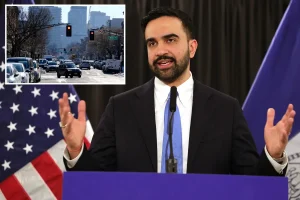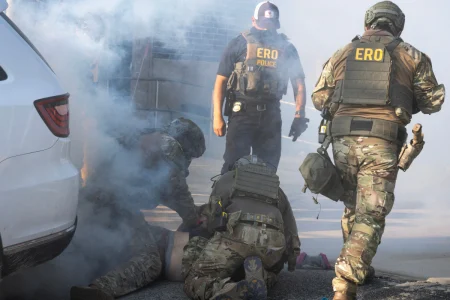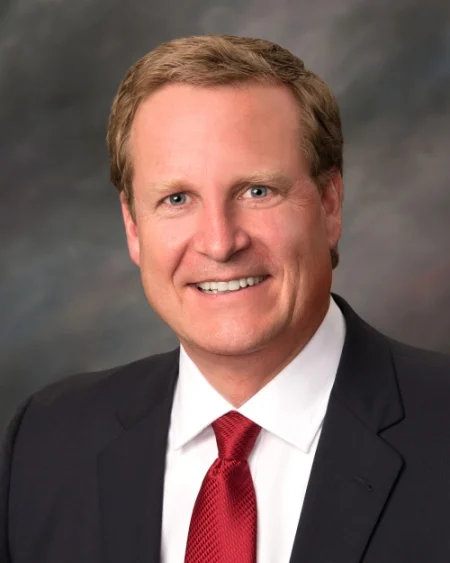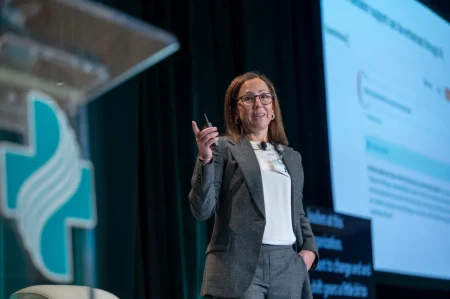In a controversial move, the Edison Municipal Council in New Jersey has ignited widespread protests by classifying the American flag and the U.S. Constitution as “props” prohibited from public meetings. This ordinance, instituted to establish strict decorum rules following a series of tumultuous council meetings, not only forbids props but also imposes a four-minute limit on public addresses and bans costumes and non-essential masks. The council’s intention appears to be to restore order; however, residents perceive these restrictions as a direct attack on their rights, leading to mounting frustration and civil unrest.
The catalyst for the protests was a recent council meeting where local lawyer Joel Bassoff challenged the ordinance by brandishing an American flag. His act was met with a stern warning from Council President Nishith Patel, who threatened to remove him from the meeting for breaking the “props” rule. Bassoff argued that waving the flag represented constitutional rights, contributing to an escalating confrontation during which he refused to yield his speaking time. The encounter attracted considerable attention when it went viral on social media, with the New Jersey GOP seizing upon the moment to rally residents against the council’s perceived infringement of their freedoms.
Critics of the ordinance argue that equating national symbols and foundational documents with mere props is an affront to the values the flag and Constitution represent. Community members like Maryann Hennessey voiced their indignation, asserting that such classifications trivialize the significance of these symbols in American identity. Moreover, others see the council’s measures as an overreach that aims to stifle free expression, turning public meetings into a restrictive environment rather than a platform for civic discourse. Their sentiments align with a growing belief that the council’s actions demonstrate a lack of accountability to the very constituents they are meant to serve.
Concerns raised during the council meetings often revolved around the perceived need to maintain order and prevent disruptions caused by some participants’ theatrics. While acknowledging that recent sessions have devolved into chaotic displays, residents such as Sue Malone-Barber contended that the council’s attempts to curtail free speech through enforced decorum are ineffective and counterproductive. Citizens believe that cracking down on expression fosters resentment and determines the dynamic of public meetings rather than improving it.
The ordinance has also drawn criticism for its additional restrictions, which range from banning loud, aggressive speech to requiring speakers to wait for recognition before addressing the council. Opponents argue that these rules exemplify a juvenile response to civil dissent and only serve to alienate residents who feel marginalized from the governance process. They emphasize that ordinary citizens respond to heavy-handed crackdowns by becoming more vocal in their opposition, inadvertently escalating the very issues the council seeks to mitigate.
As the focus shifts to the next council meeting scheduled for December 11, the tension between local governance and community sentiment remains palpable. The Edison council’s actions have sparked a mobilization of residents eager to voice their discontent and remind the council of its obligations to uphold democratic principles. This situation presents a critical juncture, highlighting the ongoing struggle between public expression and regulatory authority within local government—a fundamental debate at the heart of American democracy.















